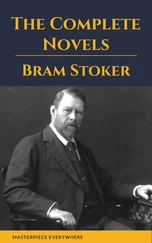“I do not know what they were trying to do, sir, unless making contact with a spy in the town,” he said. I nodded and went back to bed. Long ago I had learned not to worry about small problems that I could not solve. It was as well, for in the morning the puzzle solved itself. I looked at the dead man lying on the bank, close to the point where the guard had intercepted the boat—and I recognised him. “They brought him back to show that they had caught him,” I said. “He was a Frank I sent to spy out the camp of Rando some weeks ago. They were not kind to him, were they, Quintus? Pity. Now we shall never know what he learned.”
The work of preparation and its problems continued. Complaints from quartermasters about a shortage of boots and rations; queries from armourers concerning war heads for arrows and suitable canisters in which to hold the preparation for liquid fire; difficulties over the stabling of spare horses; requests from cohort commanders whom I visited to advise on tactics to meet this eventuality or that; discussions to simplify our signal system; auxiliaries to be commended for their efficiency; and everyone to be encouraged; everyone to be made to believe that with their aid I could achieve the impossible. The days were never long enough, and though I worked my officers hard and delegated my authority as much as possible, both Quintus and I began to feel the strain. We woke tired in the mornings and we went to bed at night to sleep as though we were already dead.
Often I had dreams and I stood again on that beach with Julian, knowing every line on that tired, bitter face, creased with the lines of middle-age; and hearing again the tired, bitter words that he had spoken. It is I who shiver now . . . what happened to my high-priest’s daughter? . . . . they believed I was a god. . . .
Did he know or did he guess that exile was the punishment that Fullofaudes had intended for him? I often wondered.
XI
JULIUS OPTATUS SAID patiently, “I am sorry to trouble you again, sir, but the supplies for this month are overdue. We are short of fodder for the horses; the remounts we were promised haven’t arrived, and General Veronius keeps pressing me to do something.”
I looked at the documents in his hand. “What else?”
“There’s quite a lot, sir.”
“Go on.”
“The breast-plates for the auxiliaries at Confluentes still haven’t arrived; the spear shafts came on that last mule-train, but without their heads, and some of the weapons aren’t up to standard. The bows from Mantua are too light, and the last consignment of swords are badly balanced; much too heavy in the hilt. Shall I send them back?”
“Can our armourers do anything?”
“They can try, sir, but the master fletcher just got into a rage when I showed him the bows.” Optatus grinned. “You know what a temper he has, sir. He snapped the one he was testing and threw it at me.”
“I’ll write to the Curator,” I said. “I’ll see what I can do.”
I was always writing letters these days: letters to the governor of Belgica, asking for his support for this or that; letters to the Curator, full of detailed requests and complaints, all of which he answered meticulously but about which little seemed actually to be done; and letters to Chariobaudes, general of the field army in Gaul, asking for the loan of trained centurions and officers whom he always found an excuse not to send. Then there was the difficulty of supplies. These were delivered by the slow waggon post and I relied on this for all food-stuffs, uniforms and arms, timber and stone-work. The trouble here was administrative. It was an imperial service which was controlled by warrant. I was allowed only five warrants a year, which was absurd considering the waggon loads of goods I needed. To obtain more warrants I had to write to the Praefectus Praetorio and it took time for the messengers to get to Arelate and back. Even a messenger needed a warrant. Without it he could not change horses at the posting stations. The first time I wrote the Praefectus replied that I had had my quota for the year. It took another messenger and another warrant to persuade him that I needed special consideration. After that he would always send me a batch of five warrants at a time, but never more. I complained about this on numerous occasions but without effect. He was the Emperor’s representative and he knew his power. I had met him once, a small, insignificant, short-sighted man, now badly running to fat. He had a dry, pedantic way of speaking, rarely smiled and was quite without a sense of humour. His only interest outside his work, besides his plain, dull wife, was his curious passion for Greek sculpture about which he wrote endless dry, dull and worthless monographs which nobody ever read. He was, and I believed it, honest, incorruptible and painstaking at his work; but he had no imagination and this flawed what intelligence he possessed. This was the man with whom I had to work to achieve my purpose and, thinking of him sometimes, I could have wept with frustration. He was so typical of the senior administrators who now controlled the destinies of the imperial provinces. Small wonder then that Rome grew downwards like a cow’s tail.
My principal worry, however, was the shortage of recruits to the auxiliaries. Though I had enough, if need be, to man the signal towers, provide skeleton garrisons for the forts, and to take on those duties that would release my men for the more important task of fighting, I still had hopes that I might raise a field force of reserves from the teeming population in and around Treverorum. I had sent out officers and centurions, in batches, on recruiting drives, but with little success. Between them they had not raised enough men to man a war galley.
“There must be some way of getting them to join,” I said in despair.
“We have taken on all the convicts for the fleet,” said Quintus. “Now, whenever the magistrates sentence a man they offer him the choice of hard labour in the mines with lashes or hard labour in the legion of General Maximus, with pay.”
“What about the slaves?”
“They have all run away or long ago accepted Honorius’ offer and gone to Italia.”
“If I had time to spare I would go to Arelate and make them help me.”
“What help do they give who do not wish to give it,” he said in a sombre voice. “The Praefectus Praetorio would only smile that thin smile of his, and say that the matter must be referred to another meeting of his wretched council.”
“Yes,” I said. “I never met a man so terrified of taking responsibility. The only decisions he ever takes are those that affect his own desires. He is quite selfish and quite useless.”
At that moment Aquila came in. “A message from Flavius at Treverorum, sir.”
I read the letter.
“More trouble,” said Quintus, raising his eyebrow.
“Yes. One of his men has deserted him.”
“Well, we’re best without him then.”
I said grimly, “He’s taken refuge in one of the churches. Flavius tried to get him out and there was trouble with the priests. They have seen it as an opportunity to denounce us. We tax them to the hilt, steal their goods, demand their food, and then even the men who are meant to defend them desert.”
Aquila said, “It could be very awkward, sir.”
“It is.”
“What will you do?”
“I shall have to go and straighten things out.”
“The fuss will die down,” said Quintus calmly.
“Will it? Who will take up arms now, when even Roman soldiers are deserting to seek sanctuary in the middle of the city? Flavius is an idiot. He should have let the man get out of the city and then arrested him.”
“Well, how was he to know the man would run into a church.”
I said irritably, “He just should have known.”
Читать дальше












